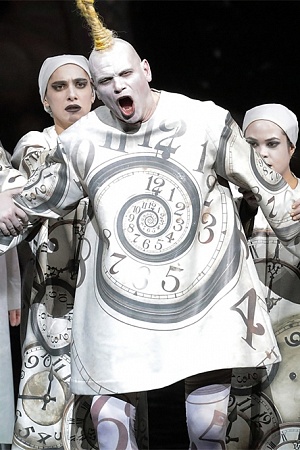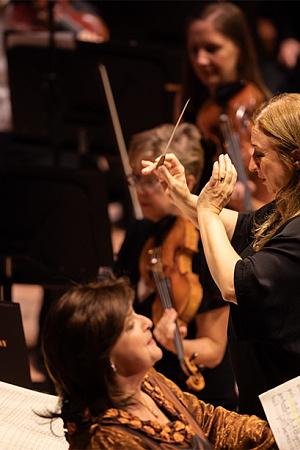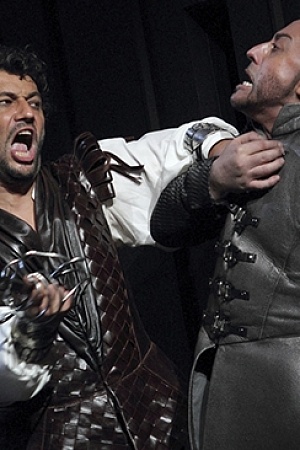Der Freischütz (Melbourne Opera)
In these straitened economic times, it is rare for opera companies to stray far from the standard, well-known repertoire. But there are only so many Toscas, Traviatas, and Butterflys one needs to see in a lifetime. So it is pleasing that Melbourne Opera was prepared to stage an opera once so famous it was parodied by Gilbert and Sullivan but is nowadays sadly neglected. The last time this writer saw Der Freischütz was at Southampton in 1975 (Glyndebourne Touring Company). It has not been done in Melbourne since 1969. Performances in other parts of the world are infrequent – a pity, since Carl Maria von Weber’s opera is a true ensemble piece that can be staged to great effect.
First performed in 1821, Der Freischütz is the forerunner of a native, German opera school, a major influence on Wagner, Marschner, Kreutzer, Lortzing, Nicolai, and Cornelius. Weber’s librettist, Friedrich Kind, combined scenes of everyday rural German life with folk tales and the supernatural; in other words, a Germanic opera school as opposed to the prevailing Italian.
Continue reading for only $10 per month. Subscribe and gain full access to Australian Book Review. Already a subscriber? Sign in. If you need assistance, feel free to contact us.










Leave a comment
If you are an ABR subscriber, you will need to sign in to post a comment.
If you have forgotten your sign in details, or if you receive an error message when trying to submit your comment, please email your comment (and the name of the article to which it relates) to ABR Comments. We will review your comment and, subject to approval, we will post it under your name.
Please note that all comments must be approved by ABR and comply with our Terms & Conditions.